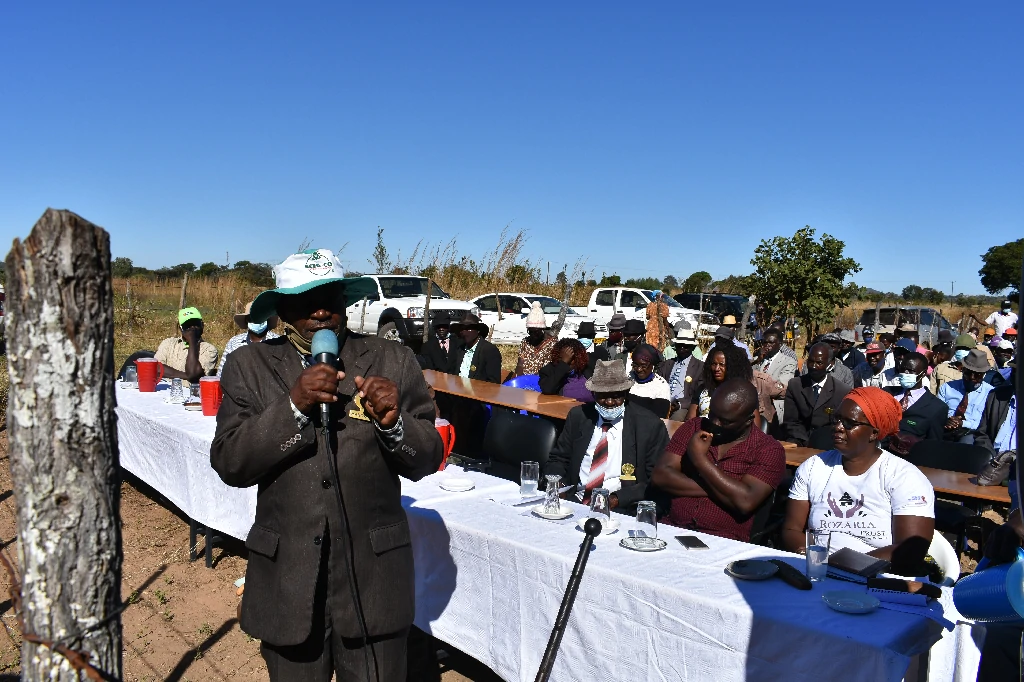Child marriage, a severe violation of human rights and a barrier to gender equality, remains a prevalent issue globally. In Zimbabwe, districts like Murewa and Shamva have seen alarming rates of this practice. This has resulted in local chiefs in the two districts, taking a proactive stance.
A UNICEF (2015) report, estimated that 31% of girls in Zimbabwe marry before 18. In Murewa and Shamva, ZIMSTAT (2015) revealed even higher rates, reaching 36% and 50% respectively. These districts are recording increased rates of school dropouts due to teenage pregnancies and a rise in SGBV cases, all exacerbated by the COVID-19 pandemic.
Determined to curb these challenges, Chief Mangwende of Murewa, Chief Nyamaropa, and Chief Bushu of Shamva, with the support of Rozaria Memorial Trust developed by-laws specifically targeting child marriage.

The Murewa by-laws, particularly section 4, address harmful cultural and religious practices like ‘chiramu’ and ‘chimutsa mapfiwa’ identified during consultations. These practices violate children’s rights and dignity. Former Interim Chief Mangwende and Tichafa Chibanda, chairperson of the by-laws committee, highlighted the importance of protecting girls from such violations.
“Mangwende Chiefdom has 5 traditional wards with each ward under a Headman/Muchinda. All key stakeholders in Murewa agreed that bad cultural practices like chiramu, chimutsa mapfiwa, incest, kurotswa, and virginity testing have to be banned because the practices violate children’s rights and dignity. As we carried out consultations in the wards, majority of the girls shared their experiences of being taken to the river and having fingers inserted in their private parts to ensure the hymen is still intact,” said Chibanda.
Shamva: Special Courts and Intergenerational Leadership
In Shamva, Chief Bushu established a Special Court within the by-laws, a major step towards enforcing child marriage laws. He emphasized the value of intergenerational leadership, ensuring children have a voice in the court proceedings. The court boasts gender balance and includes representatives from vulnerable groups.
“We have started to use the Special Courts where I specifically adjudicate cases of children live on camera. The child participates and has the right to ask for some people in court not to be present if she does not feel safe. The court has gender balance among its assessors who support me, and also includes a person with disability and two young persons. When we were carrying out consultations on bylaws in my Chiefdom, I realised our traditional culture does not give children the opportunity to speak up and give inputs on decisions even on issues that concern their upbringing and wellbeing. Therefore, I had to ensure that the bylaws have a strong emphasis on access to education and intergenerational co-leadership,” said Chief Bushu.
Community and Government Support
The initiative has received positive feedback from residents, government stakeholders like the Ministry of Local Governance, and NGOs working on women’s empowerment and child development. Mr. Charles Chiguvare, Assistant District Development Coordinator for Murewa, welcomed the by-laws, acknowledging their alignment with national development goals and the Sustainable Development Goals (SDGs), particularly SDG 1 on poverty eradication.
“The bylaws are going to make an impact as they complement the National Development Strategy 2021-2025 which is the road map to the national vision of our county of attaining an upper middle-income economy and society. These bylaws contribute towards the national vision and also feed into the Sustainable Development Goals (SDGs) specifically SDG 1 which talks of eradicating poverty because poverty is actually one of the root causes of child marriage,” he said.
Tseketsa kumwanasikana: Empowering Girls and Reducing Vulnerability
Section 7 of the Murewa by-laws introduces “Tseketsa kumwanasikana,” an initiative providing every girl child in the chiefdom with an economic asset. This aims to empower girls and reduce their vulnerability to child marriage. Mrs. Abigail Nyoka, Acting District Development Officer, applauded the initiative, emphasizing its potential to promote economic independence and access to life skills training, including sexual and reproductive health education.
“We are going to see a number of girls and young women starting their own businesses through the ‘tseketsa kumwanasikana’ initiative. We welcome the initiative as it will promote economic empowerment and ensure girls are self-reliant thereby reducing poverty. As a ministry we are most excited about the Nhanga as a safe space that will also enable girls to learn life skills and disclose issues that affect them especially Sexual and Reproductive Health challenges especially menstrual health related issues,” she said.
Looking Forward
The by-laws identify poverty, cultural beliefs, and apostolic religious practices as key drivers of child marriage. These comprehensive measures prioritise education access and economic empowerment for all children in the chiefdoms. Effective implementation and continued government support are crucial for ensuring girls’ voices are heard and their participation in public life is fostered. The proactive approach by traditional leaders serves as a powerful model for tackling child marriage across Zimbabwe. Effective implementation of the bylaws and political will from the government are key drivers to ensure effective public participation of girls and young women in public life.